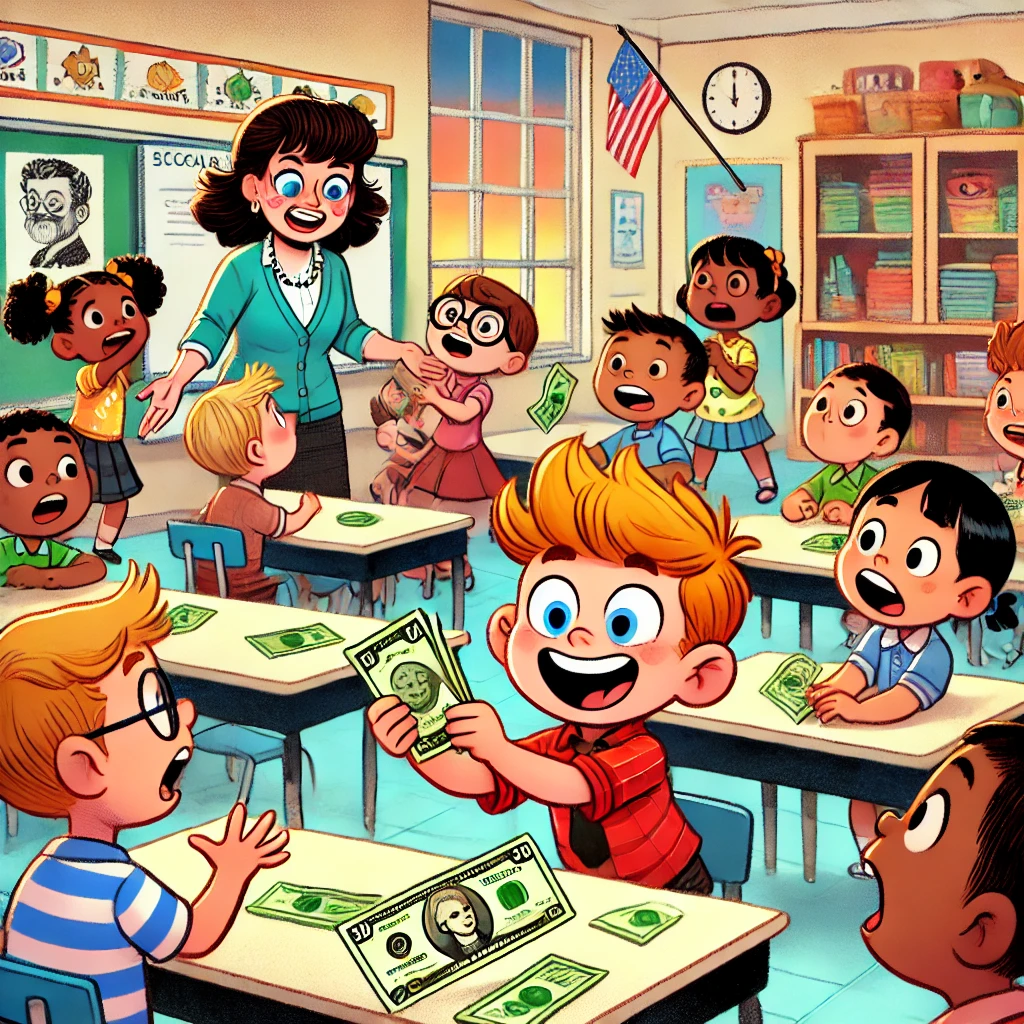It was the end of a pretty typical day in elementary school when I got a call from Ms. Dawson’s second-grade classroom. You know the one—half whisper, half plea for backup: “Uh, we’ve got a… situation.” As a school principal, I was no stranger to second-grade drama, so I expected the usual—a minor injury or maybe a renegade glitter explosion. Instead, I walked into what could only be described as a mini Wall Street, with kids holding way more cash than any second grader should have on a Tuesday.
Ms. Dawson filled me in: Jonah, one of our more “entrepreneurial” students, had been handing out crisp $20 bills to his classmates all day. No, not Monopoly money. These were real, fresh-off-the-press $20 bills. As in, $20 x 24 kids = $480. My first thought: How did a seven-year-old get his hands on that kind of cash?
I called Jonah out for a quick hallway chat while his teacher helped the class get ready to dismiss. After the usual line of questioning, it turned out the young man had found some of his mom’s money and figured that passing it around would make him the most popular kid in the room.
When I asked why he thought handing out cash was the right move, he shrugged and said, “Well, they liked me a lot more when I gave it to them.” Smart kid!

I couldn’t help but think of Zig Ziglar’s words: “If you go out to be a friend, you’ll find them everywhere.” But Jonah? He was buying them at $20 a pop. Needless to say, we had a little talk about friendship, honesty, and the real meaning of generosity. And then, with a very understanding Ms. Dawson as my co-pilot, I got each student to hand over their “earnings.” (Reluctantly, I might add.)
Once the cash was recovered and the bell rang, I had a quick chat with Jonah’s mom in the pickup line. She was mortified, of course, but we agreed to take this as a teachable moment. I reassured her that Jonah wasn’t the first student with “creative” ideas about friendship and that, together, we could help him find ways to connect with his classmates—without raiding her wallet. You Can’t Make This Up!
Key Takeaways:
Stay Calm and Collected
When faced with unexpected behavior, gather the facts. Kids often have innocent intentions with quirky logic behind them. In Jonah’s case, his “generosity” was a well-intentioned misfire.
Partner with Teachers and Parents
Ms. Dawson’s quick response and the parent’s openness turned a challenging situation into a cooperative effort. Teaming up helps everyone feel supported and understood.
Turn It Into a Learning Moment
Returning the cash was a small victory, but the bigger win was helping Jonah understand friendship in a meaningful way. With teamwork and patience, even wild situations can teach students lessons they’ll never forget.
Show Humor and Grace Under Pressure
Sometimes, humor is the best way to manage the unexpected. While Jonah’s methods were unorthodox, handling the situation with humor helped defuse tension, saved some embarrassment, and made it easier for Jonah to keep learning with his class.
We all got a reminder that sometimes second-grade math takes a real-world twist. It turns out that $480 in “popularity investments” added up to a priceless lesson about the true value of friendship.
You Can’t Make This Stuff Up!
— Jane
